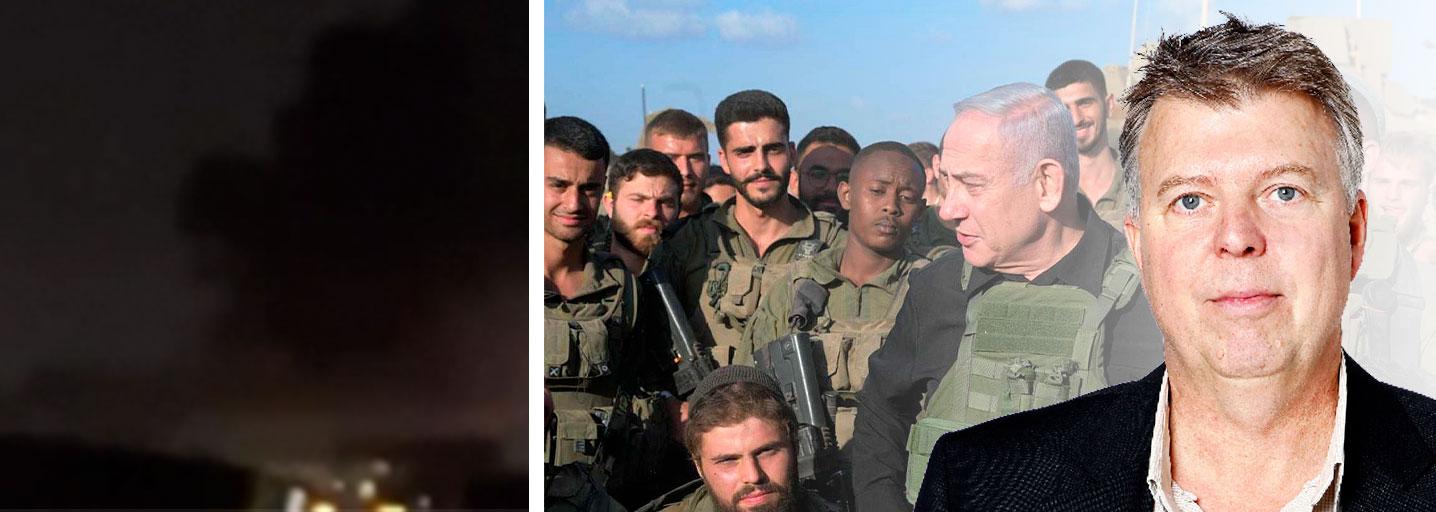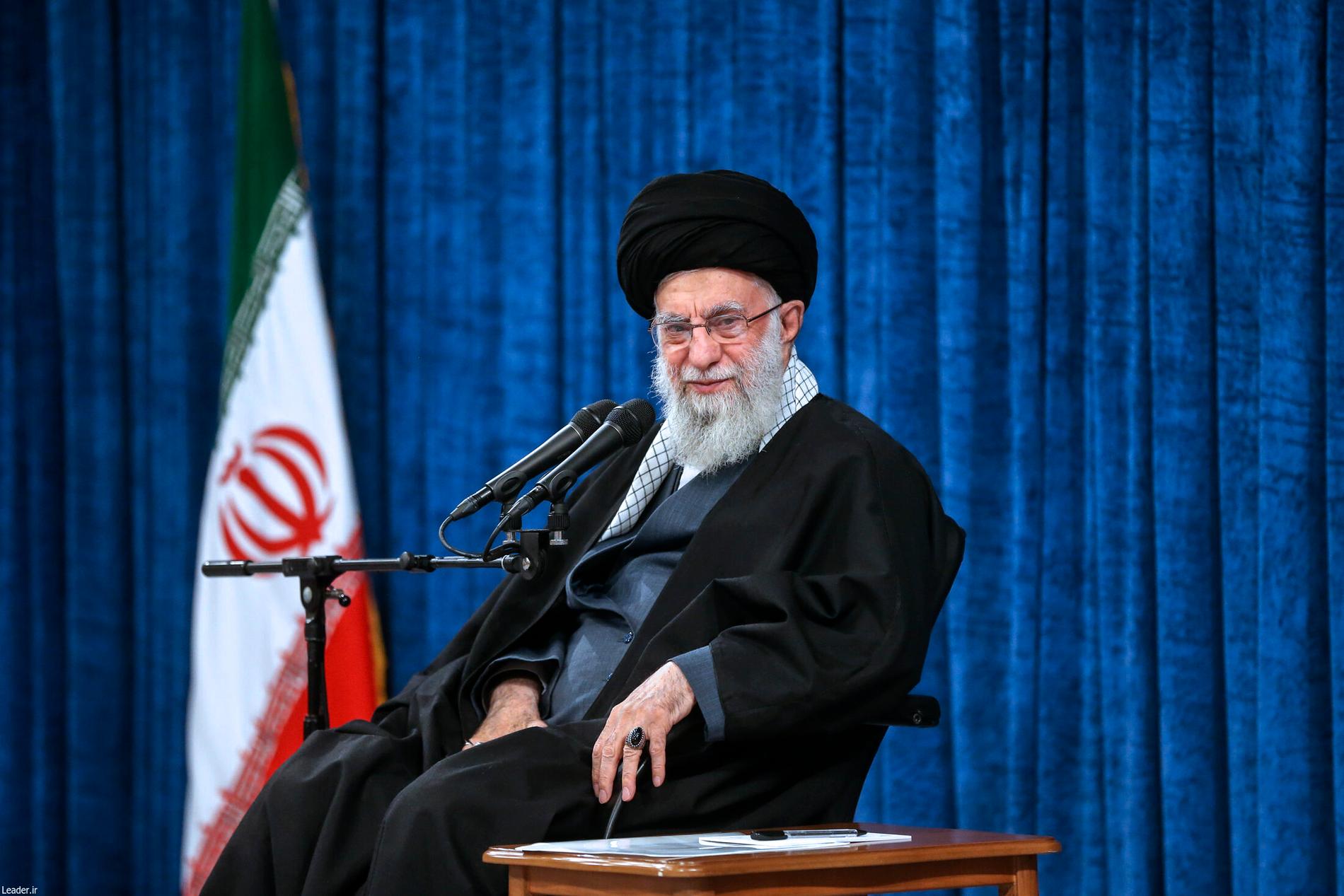บีบีซีไทย - BBC Thai
ย้อนชีวิตราชการของ พล.ต.อ.สุรเชษฐ์ หักพาล สู่ช่วงเวลาพลิกผันเกือบ 8 เดือน ของศึกสีกากี นับจากช่วงการชิงตำแหน่ง ผบ.ตร. เมื่อเดือน ก.ย. 2566.


9h ·
ย้อนชีวิตราชการของ พล.ต.อ.สุรเชษฐ์ หักพาล สู่ช่วงเวลาพลิกผันเกือบ 8 เดือน ของศึกสีกากี นับจากช่วงการชิงตำแหน่ง ผบ.ตร. เมื่อเดือน ก.ย. 2566.



Iran
Israel's modest revenge opens the door to other threats
Wolfgang Hansson
This is a commenting text. Analysis and positions are the writer's.
Published 12.07
Clouds of smoke over Isfahan in Iran after the attack.
Image in social media that is said to show clouds of smoke over Isfahan. Photo: From Telegram
If this was Israel's revenge against Iran, it was far milder than even the greatest pacifists had hoped for.
For now, a major war in the region appears to have been averted.
But it is too early to breathe a sigh of relief.
Quick version
First, Israel attacks Iran's consulate in Damascus. Either a deliberate provocation or a miscalculation.
Iran responds with a massive missile attack on Israel. The first time you directly attack your arch-enemy instead of going through proxy groups like Hezbollah in southern Lebanon and the Huthi rebels in Yemen, as before.
Israel vows revenge. But when it comes, they don't even officially take responsibility for the attack last night against a military base outside Isfahan in Iran.
Iran plays down the Israeli counterattack. Points out that no one was killed and that nothing of value was destroyed. It is said that it was not even an Israeli attack but that it was carried out from Iranian territory.
It is a strange diplomatic dance the world has witnessed in recent days.
From extremely high tension with a seemingly imminent risk of a major war in the Middele East to a sudden de-escalation where both sides say they have no plans to attack the other.
Iran has had to show its people, its allies and even its enemies in the Arab world that it has the ability to directly attack Israel. But it was done in full confidence that Israel's air defenses would make the damage very limited.

Israel felf compelled to respond with a direct attack on Iranian territory but apparently bowed to pressure from the United States in particular to stay at a level that did not further escalate the conflict.
Plus Israel has its own interest in not opening a second front in the war against Hamas.
Netanyahu may also have listened to those who said that Israel should take advantage of the new sympathies it has received in the world due to the Iranian attack.
Israel has long sought to establish an international alliance to isolate Iran. Iran's attack appears to have accomplished something similar.
As recently as yesterday, the EU decided to target new sanctions against Iran.
Both Iran and Israel seem satisfied with what they have achieved. They have sent their signals. They have flexed their muscles for the other side.
But this round is over.
Now they can go back to the proxy war that has been going on for decades. Neither of them wants a major war.
So is everything calm now? Can we sleep well at night?
Well, the danger of a major war may have decreased for the time being, but the Middle East continues to be a powder keg.
According to information in the british BBC, Israel settled for a very limited attack because Prime Minister Netanyahu would have received the go-ahead from President Biden to carry out a ground offensive in Rafah in Gaza, where Hamas' remaining militiamen and leaders are believed to be hiding.
I find it hard to believe that is true considering how hard Biden has gone public and warned of a ground offensive where the civilian population would be hit hard.
But Netanyahu certainly hasn't given up on plans for a ground offensive to crush what's left of Hamas and hopefully get some of the hostages out alive.
When the emergency situation with Iran now appears to be over, Israel can once again concentrate on Gaza. Nobody knows if and when there will be an offensive, but the Gaza war is definitely not over.
However, the reduced tension with Iran may lead to the resumption of negotiations on a temporary ceasefire in Gaza. They have been going on for months without yielding any results because both Hamas and Israel have refused to give in to their demands.
Perhaps the conditions have now changed.

But Netanyahu has also taken a major domestic political risk by not cracking down harder on Iran. The right-wing elements within his own government will strongly criticize the Prime Minister for not seizing the opportunity. They had wanted to see Israeli bombings against Iran's nuclear facilities. Israel is convinced that Iran is only months away from developing its own nuclear weapons. Something that is seen as an existential threat because the mullahs in Tehran have as stated goal to wipe out the Jewish state.
A bomb attack on the nuclear facilities would have slowed Iran's plans.
Now the extreme right will instead increase the pressure on Netanyahu to crush Hamas once and for all.
The settler parties have a hold on the prime minister. If they leave the government, Netanyahu is forced to resign.
In the meantime, the outside world can at least breathe a sigh of relief for a while. A taboo has been broken by Iran and Israel directly attacking each other.
Very little suggests that it cannot happen again.